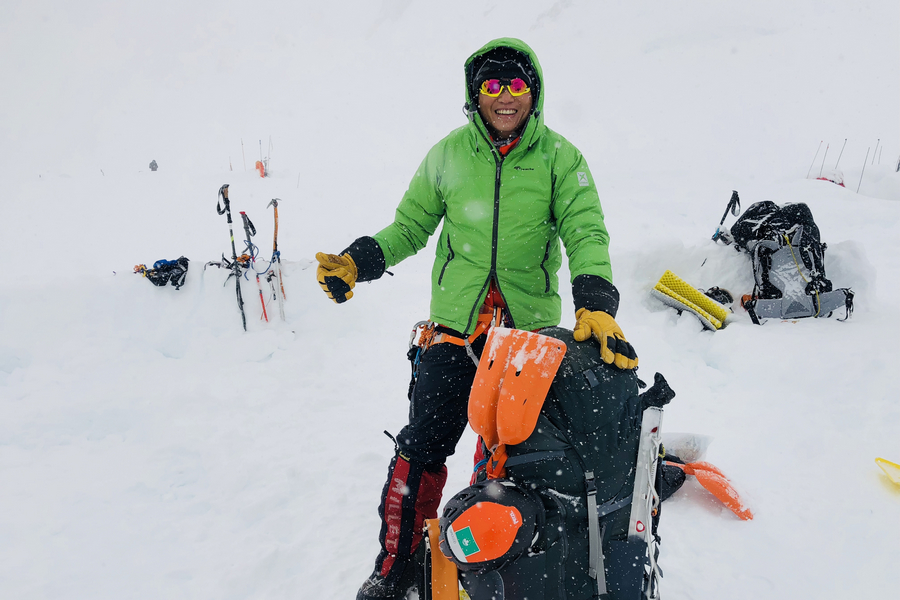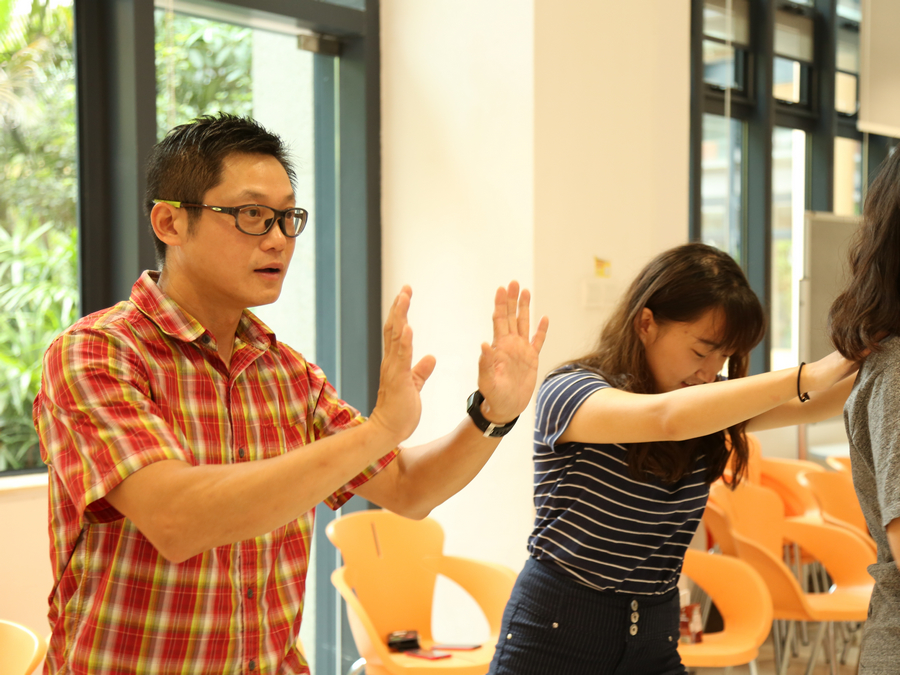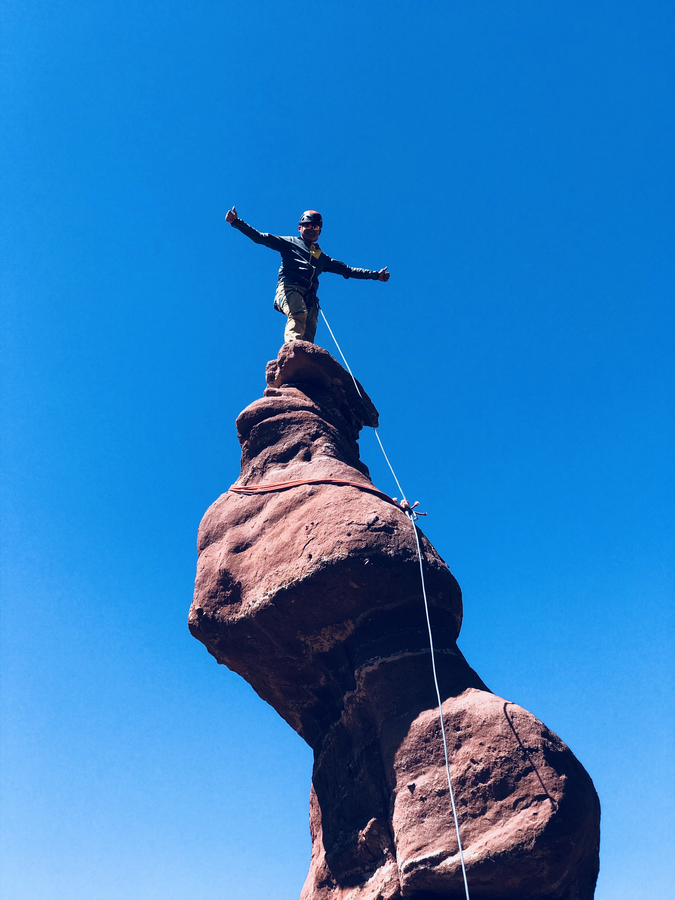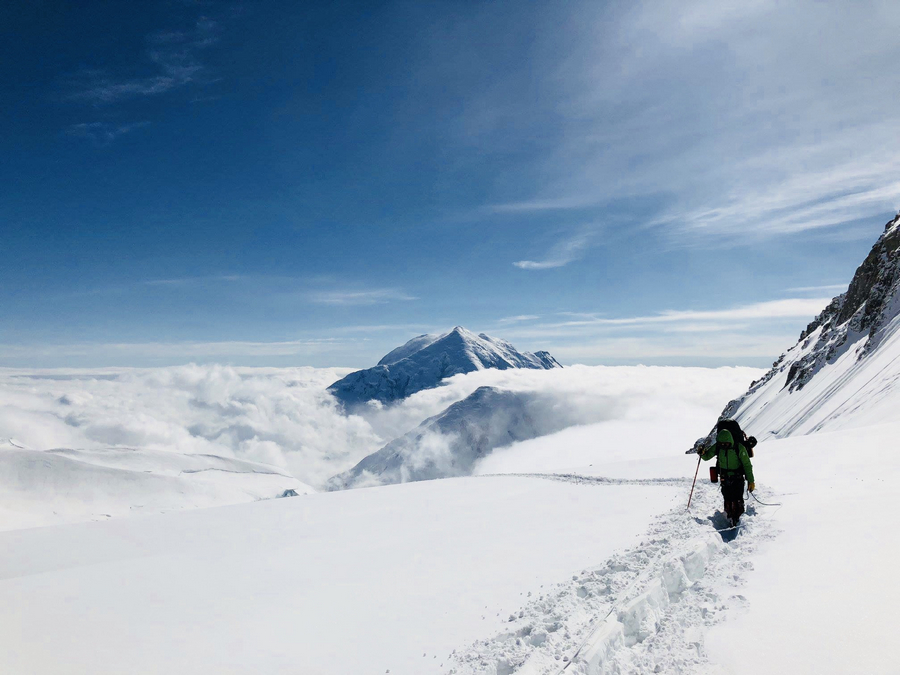Hills—A Childhood Playground
The CKPC comes alive at the start of a new semester, with peels of laughter echoing around the building. It is the result of an experiential learning activity in adventure training which Cheang organised for a group of tutors and college assistants. The students listen attentively to Cheang’s instructions, eager to try the tools in front of them.
Cheang grew up in Green Island, Macao. The hills and rivers near his home were his childhood playground. Now an outdoor adventure instructor, Cheang has taken countless students and groups on mountain-climbing trips all over the world. In the new academic year, he became a resident fellow of the CKPC, where he believes he can help the students grow with his personal experiences and educational philosophy. ‘Outdoor educational activities can help students become more adaptable and develop a team spirit, so that they can be intellectually and psychologically prepared for challenges that will inevitably arise in their daily lives,’ says Cheang.
The higher you rise, the more you should learn to be humble.’
‘Servant-leader’ is a concept proposed by Robert K. Greenleaf, founder of the modern Servant Leadership Movement. According to Greeleaf, the first priority of a servant-leader is to serve and meet the needs of those he leads. The late Mahatma Gandhi and the late South Africa president Nelson Mandela were both brilliant examples of servant leadership.
To Cheang, an ‘outstanding’ person is not someone who has a high social status or earns a lot of money; rather, it is someone who upholds his moral integrity regardless of the circumstances and who repays society and serves those in need. He often tells the students, ‘The higher you rise, the more you should learn to be humble. Don’t ask how much you receive. Ask instead how much you can give others. Be a servant to serve others.’
Mountain Climbing Lifted Him Out of the Dark Abyss of Depression
For many people, mountain climbing is a demanding sport that requires one to get out of her comfort zone. But to Cheang, it is actually the opposite—mountain climbing is his comfort zone. In fact, this potentially dangerous sport once saved his life. He recalls the devastating death of a close family member that happened when he was young. He was so traumatised by the sudden tragedy that at one point he couldn’t tell whether the person sitting in front of him was real or a product of a hallucination. He was on the verge of a nervous breakdown, until one day he walked into the mountains. There, for the first time in a long time, he felt certain that things he saw before his eyes were real. Eventually, his faith in God and his love of outdoor sports combined to pull him out of the dark, bottomless abyss of depression. For this reason, he feels compelled to teach what he has learned from mountain climbing to his students. He wants to share with them how mountain climbing not only enriched his life but also allowed him to make sense of his past.
Leading a Hiking Team in Himalaya
‘Being a blessing to others’ has always been Cheang’s motto, and his trips to remote mountainous regions, where he witnessed the hardships faced by the locals, have reinforced his determination to practice this motto. He has seen villagers with deformed hands or feet which resulted from untreated fractures they suffered from falling off a tree while picking fruit. He has also seen women living in appalling sanitary conditions, with no understanding of personal hygiene. In 2016, while leading a team on a hiking trip in Himalaya, Cheang arranged for his team members to teach people in remote mountainous regions in Nepal how to bandage wounds and other first-aid techniques. They taught the local women how to make sanitary napkins using cloth and buttons, and also worked with local medical centres to provide disinfection services. The first-aid techniques and the hand-made sanitary napkins greatly improved the sanitary conditions in the local areas. He recalls these experiences with a smile, saying, ‘Being a blessing to others is itself a blessing.’
Teaching Rope Rescue Techniques
In Cheang’s experience, it was relatively difficult to organise outdoor activities for students from primary and secondary schools in the past, because of the various constraints. So he is especially appreciative of the variety of sports facilities at UM. ‘The rock climbing wall alone saves me a lot of trouble in finding a practice venue. It allows me to design more experiential activities,’ he says. With the great support of the college master, Cheang launched the Leadership Adventure Programme, under which he formed an outdoor experiential education team called ‘Me to We Leadership Exploration Team’. Through this programme, he also launched a course in the basics of mountain climbing, an instructor course in experiential education, a course in canoeing, and a course in rope techniques and wilderness first-aid techniques. In addition to these courses, he also organises various kinds of outdoor experiential activities that involve all students from the college. ‘I hope to extend outdoor education to include all students at UM. Moreover, I hope that one day UM will launch a creditbearing course in outdoor education,’ he says.
Source: My UM

46139-77963.jpg

Cheang Chi Ming (left) leads an experiential learning activity in adventure training for the students

Climbing mountains has taught Cheang to stay humble

Cheang doesn’t climb mountains to break records. He does so because he enjoys being in the mountains. Pictured is Cheang climbing Denali
